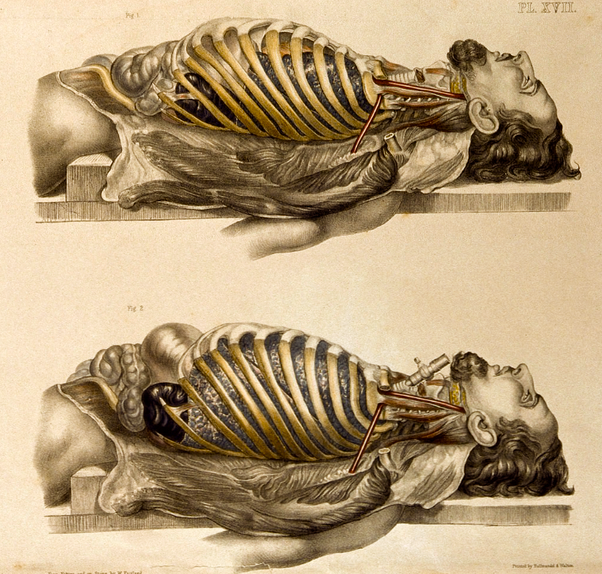31
Common Health Care / What are the first signs of stomach cancer?
« Last post by Rasel Ali on March 22, 2025, 10:34:56 PM »What are the first signs of stomach cancer?
The very first signs of stomach cancer are so random that virtually no one would even dare to think about stomach cancer (or any other cancer) in the first place.

That’s the essence of its deadly accuracy.
Persistent indigestion and heartburn, trapped wind and frequent burping, feeling very full or bloated after meals, persevering stomach pain — et voila, a set of extremely generic symptoms which might as well be a signal that the patient simply overeats on a regular basis. (Call it Americanitis if you will.)
(It’s the very problem with “symptoms” which sound more like a daily thing, rather than an appointment with your favorite undertaker.)
The symptoms of advanced stomach cancer are much clearer though: black stools (implying there is blood in it which “comes from within,” and not fresh innocent blood coming from e.g. hemorrhoids), loss of appetite and weight loss.
The last two symptoms are very generic cancer symptoms, but the black stools definitely mark a cancer spot. Our cleaning lady could attest to that — her uncle had it, her dad had it, and she had it too: the black stool revelation. (They all survived, by the way.)
In the family of a colleague of mine, the situation was a tad different: paternal grandfather was very tired and had black stools (died at the age of 58 of stomach cancer), the paternal grandfather’s brother found some black stools as well in the toilet bowl but chose to ignore them (died at the age of 61), my colleague’s dad found them as well but acted quickly in a panic (still alive), his aunt (sister of his dad) found black stools and lost weight (died at the age of 60), and unfortunately his mom’s side is infested by the same problems.
Most of them are dead.
The family is like the perfect cancer storm: most probably (= almost certainly) there is a genetic defect (such as faulted BRCA-1/2 genes) running in the family, and my colleague is really afraid that he is the next in line.
And so he is waiting for the defining symptoms that will align his future with the family’s unfortunate cancer tree: a little weight loss at first —
And then those bloody stools.
SOURCES: William Fairland, The body of a man lying down with the trunk dissected: two figures showing the lungs after breathing out (above) and after breathing in (below, simulated by inflating the lungs), from Francis Sibson, Medical Anatomy (London, John Churchill, 1869): Plate 17, 1866, colored lithograph. Wellcome Collection (no. 642390i). Digital image courtesy of Wellcome Collection (CC BY 4.0).
Source: Various Source
The very first signs of stomach cancer are so random that virtually no one would even dare to think about stomach cancer (or any other cancer) in the first place.
That’s the essence of its deadly accuracy.
Persistent indigestion and heartburn, trapped wind and frequent burping, feeling very full or bloated after meals, persevering stomach pain — et voila, a set of extremely generic symptoms which might as well be a signal that the patient simply overeats on a regular basis. (Call it Americanitis if you will.)
(It’s the very problem with “symptoms” which sound more like a daily thing, rather than an appointment with your favorite undertaker.)
The symptoms of advanced stomach cancer are much clearer though: black stools (implying there is blood in it which “comes from within,” and not fresh innocent blood coming from e.g. hemorrhoids), loss of appetite and weight loss.
The last two symptoms are very generic cancer symptoms, but the black stools definitely mark a cancer spot. Our cleaning lady could attest to that — her uncle had it, her dad had it, and she had it too: the black stool revelation. (They all survived, by the way.)
In the family of a colleague of mine, the situation was a tad different: paternal grandfather was very tired and had black stools (died at the age of 58 of stomach cancer), the paternal grandfather’s brother found some black stools as well in the toilet bowl but chose to ignore them (died at the age of 61), my colleague’s dad found them as well but acted quickly in a panic (still alive), his aunt (sister of his dad) found black stools and lost weight (died at the age of 60), and unfortunately his mom’s side is infested by the same problems.
Most of them are dead.
The family is like the perfect cancer storm: most probably (= almost certainly) there is a genetic defect (such as faulted BRCA-1/2 genes) running in the family, and my colleague is really afraid that he is the next in line.
And so he is waiting for the defining symptoms that will align his future with the family’s unfortunate cancer tree: a little weight loss at first —
And then those bloody stools.
SOURCES: William Fairland, The body of a man lying down with the trunk dissected: two figures showing the lungs after breathing out (above) and after breathing in (below, simulated by inflating the lungs), from Francis Sibson, Medical Anatomy (London, John Churchill, 1869): Plate 17, 1866, colored lithograph. Wellcome Collection (no. 642390i). Digital image courtesy of Wellcome Collection (CC BY 4.0).
Source: Various Source


 Recent Posts
Recent Posts